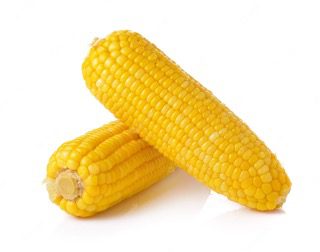

While corn can be given to dogs as a snack in small quantities, it is important to keep the corncob away from them. Ingesting the corncob can be life-threatening for dogs.
Corn is a good source of fiber, omega 6 fatty acids, protein, vitamin E, and beta-carotene, which acts as an antioxidant.
While sweet corn and other corn varieties are generally safe for dogs, those who are allergic to GMO corn may experience stomach inflammation when consumed in large amounts. Corncobs are dangerous for dogs as they can cause choking, intestinal obstruction, and perforation.
Organic, non-GMO corns should be chosen for an occasional snack. Sweet corn should be boiled or steamed without seasoning, and the corn should be removed from the cob before serving. Corn should not be a regular part of a dog’s diet as it is a high GI food that can cause chronic inflammation.
Corn, also known as maize, is a popular cereal grain that originated in Southern Mexico. It is commonly used in human food products and is also found in some dog food recipes. While corn can be a healthy snack for dogs when fed in moderation, it is important to keep the corncob away from them as it can cause life-threatening health issues.
Corn is a good source of fiber, omega 6 fatty acids, protein, vitamin E, and beta-carotene, which can benefit a dog's health. However, those who are allergic to GMO corn may experience stomach inflammation if consumed in large amounts. It is important to choose organic, non-GMO corns when feeding as a snack. Sweet corn should be boiled or steamed without seasonings, and the corn should be removed from the cob before serving.
When feeding corn to your pet, it is imperative to limit the amount. Corn, in general, is a high GI food that can cause chronic inflammation which can lead to long term health issues. Additionally, corncobs can cause choking, intestinal obstruction, and perforation in dogs, which can lead to severe consequences.
If you are looking for alternative options for your pet, it is better to opt for low GI fruits and vegetables including apples, blueberries, carrots, green beans, and cucumbers. These options can provide a burst of nutrition and leave your furry friend feeling satisfied.
Have you ever given corn to your furry friend? How did they react? Let us know in the comments below.
Remember, always consult with a veterinarian before introducing any new food items as regular meals. Keep in mind that every pet has different dietary needs and it is important to cater to their individual needs. Keep your furry friend safe and happy!